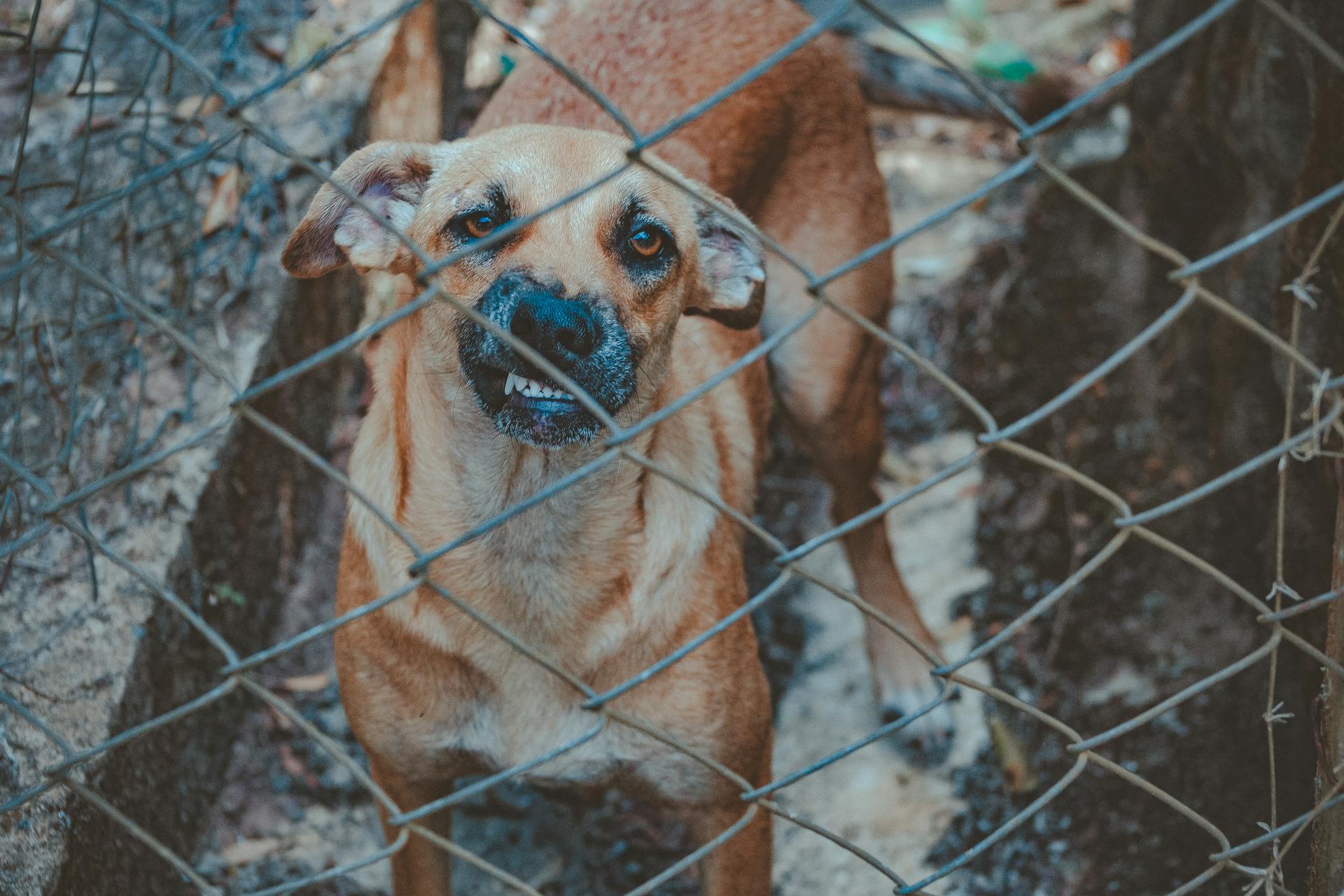
Kennel cough quarantine can be a frustrating and worrying experience for pet owners. Kennel cough is a contagious respiratory illness that affects dogs, and it's highly contagious.
Symptoms can appear within 2-14 days after exposure and can be mild to severe. The most common symptoms include a hacking cough, runny nose, and sneezing.
Kennel cough is caused by a combination of viruses and bacteria, including Bordetella bronchiseptica. This bacteria is highly contagious and can be spread through direct contact with an infected dog or by airborne transmission.
Prevention is key when it comes to kennel cough. Vaccination is the most effective way to prevent kennel cough, and it's usually recommended for dogs that are frequently exposed to other dogs, such as those that attend dog daycare or participate in dog sports.
A unique perspective: Kennel Cough Contagious to People
Causes and Risk Factors
Kennel cough is caused by a combination of pathogens, including viruses and bacteria. Some of the most common causes are Bordetella bronchiseptica, Parainfluenza, and Canine Influenza.
The risk factors for contracting kennel cough include staying in crowded dog spaces or facilities, exposure to people who come into contact with large numbers of dogs, and stress. Dogs are also more likely to contract kennel cough in moist, warm environments with poor ventilation.
Here are some of the most common risk factors that increase the chances of contracting kennel cough:
Dogs that are more likely to contract kennel cough include puppies, geriatric dogs, and dogs with immune-mediated diseases or on immunosuppressant drugs. These dogs are also more likely to experience severe secondary complications like pneumonia.
Scientific Name
The scientific name of kennel cough is a topic of interest, especially in the veterinary community. The term kennel cough was originally coined because of its prevalence in densely populated dog areas, such as kennels. However, it's now clear that the condition can occur in various settings, like dog parks, pet shops, and even veterinary premises.
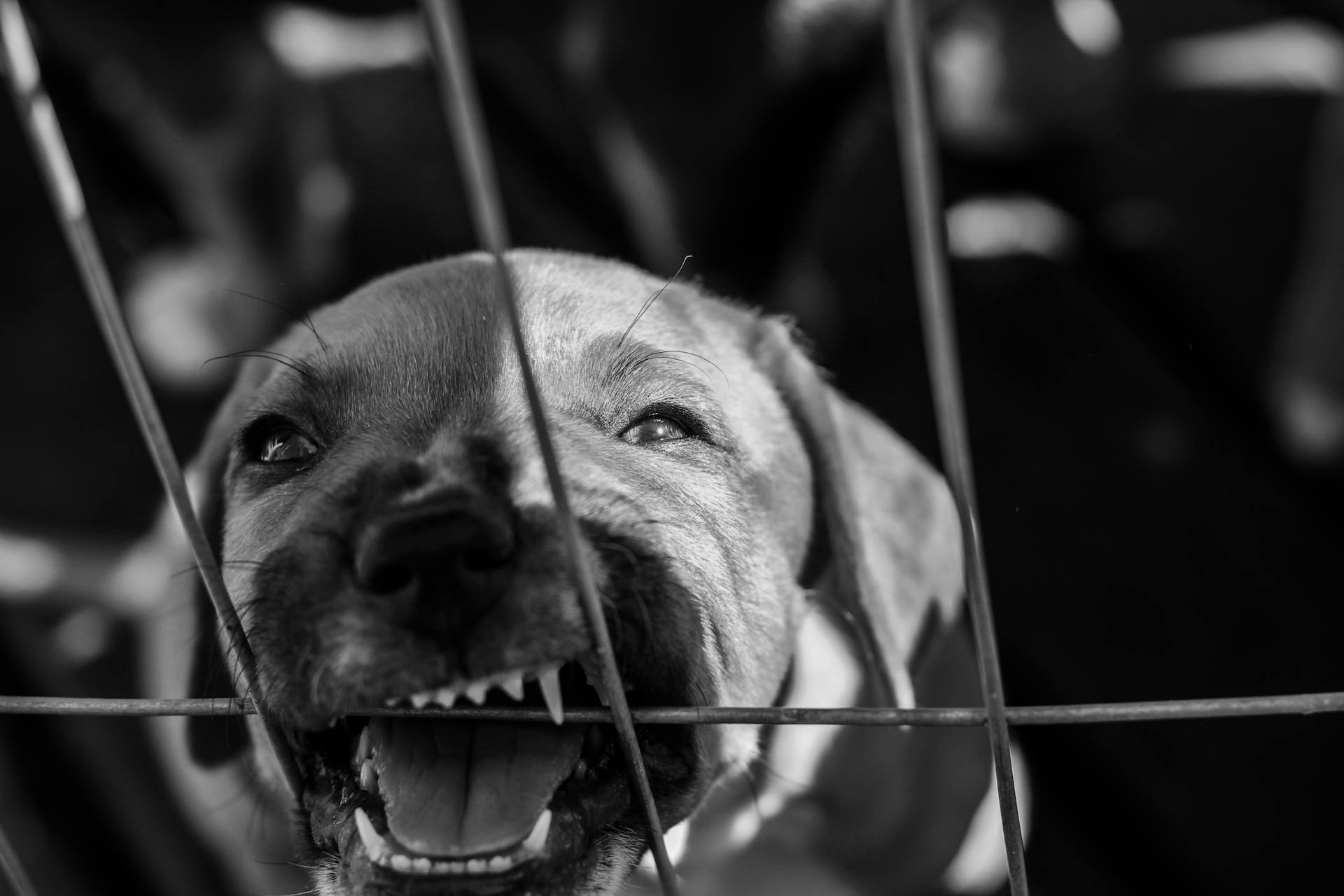
The term kennel cough is slowly being replaced with the more accurate term canine cough, as it's not exclusive to kennels. Veterinary scientists prefer to refer to the condition as canine infectious tracheobronchitis or canine infectious respiratory disease (CIRD). This name change reflects the condition's broader scope and complexity.
The causative agents of kennel cough are diverse, including bacteria like Bordetella bronchiseptica and viruses like Canine Parainfluenza (CPIV). These pathogens can work together to weaken a dog's immune system, making them more susceptible to infection.
For more insights, see: Canine Influenza vs Kennel Cough
Pathogens That Cause CIRDC
CIRDC, or Canine Infectious Respiratory Disease Complex, is a common issue that affects many dogs. It's caused by a variety of pathogens, including viruses and bacteria.
Some of the most common viral causes of CIRDC include Canine Parainfluenza, Canine Influenza, and Canine Adenovirus type 2. These viruses can weaken a dog's immune system, making them more susceptible to secondary infections.
Bordetella bronchiseptica, a type of bacteria, is also a common cause of CIRDC. In fact, it's one of the most common causes of kennel cough in dogs, along with Parainfluenza.
Explore further: Kennel Cough Bacteria
Other bacteria, such as Mycoplasma and Streptococcus equi subspecies zooepidemicus, can also contribute to CIRDC. These bacteria can infect the airways and cause a range of symptoms, from a mild cough to a severe respiratory infection.
Here are some of the pathogens that can contribute to CIRDC:
- Canine Parainfluenza virus*
- Canine Adenovirus type 2*
- Canine Influenza virus (subtypes H3N2 and H3N8)**
- Canine Respiratory Coronavirus
- Canine Herpesvirus-1
- Canine Distemper virus*
- Bordetella bronchiseptica**
- Mycoplasma species
- Streptococcus equi subspecies zooepidemicus
*Protection available through standard vaccines.
**Protection available through additional vaccines.
Risk Factors
Crowded dog spaces and kennels can be breeding grounds for kennel cough, so it's essential to be aware of the risks.
Dogs that stay in moist, warm, and poorly ventilated environments are more likely to contract kennel cough. This is because these conditions allow bacteria and viruses to thrive.
If your dog is exposed to people who come into contact with a large number of dogs, such as veterinarians, trainers, or groomers, they may be at higher risk of contracting kennel cough.
Stress can also play a role in kennel cough. Travel-induced stress or being in an unfamiliar environment can weaken your dog's immune system, making them more susceptible to the infection.

Dogs that are exposed to dust and cigarette smoke are also at a higher risk of contracting kennel cough.
Here are some groups that are at a higher risk of contracting kennel cough:
- Puppies
- Geriatric dogs
- Dogs with immune-mediated diseases
- Dogs on immunosuppressant drugs (such as prednisone)
- Brachycephalic dog breeds (Pugs, French Bulldogs, etc.)
- Dogs with pre-existing respiratory issues (such as collapsing trachea, upper respiratory constrictions)
Symptoms and Diagnosis
Symptoms of kennel cough usually appear 2-10 days after exposure, with mild cases being the most common. Most dogs will show some or all of the following symptoms: a dry or productive cough, retching or gagging, watery discharge from the nose, and runny eyes.
Bouts of hacking cough can be triggered by activities such as barking, excitement, pulling on the lead, and going out in cold air. Unless there are complications, affected dogs are usually bright, alert, eat well, and lack fever.
If a dog develops pneumonia, the clinical manifestation worsens and may include fever, difficult breathing, and lethargy. In mild cases, dogs may only exhibit a cough, sneezing, and eye discharge.
Here's a summary of kennel cough symptoms:
- Dry or productive cough
- Retching or gagging
- Watery discharge from the nose
- Runny eyes
- Sneezing
- Fever (in severe cases)
- Difficult breathing (in severe cases)
- Lethargy (in severe cases)
Diagnosis is often made by a veterinarian based on the dog's history and clinical symptoms, with a physical examination and chest x-ray performed to rule out pneumonia. In mild cases, testing is not usually necessary, but in outbreaks or severe cases, swab samples and blood tests may be recommended.
Symptoms
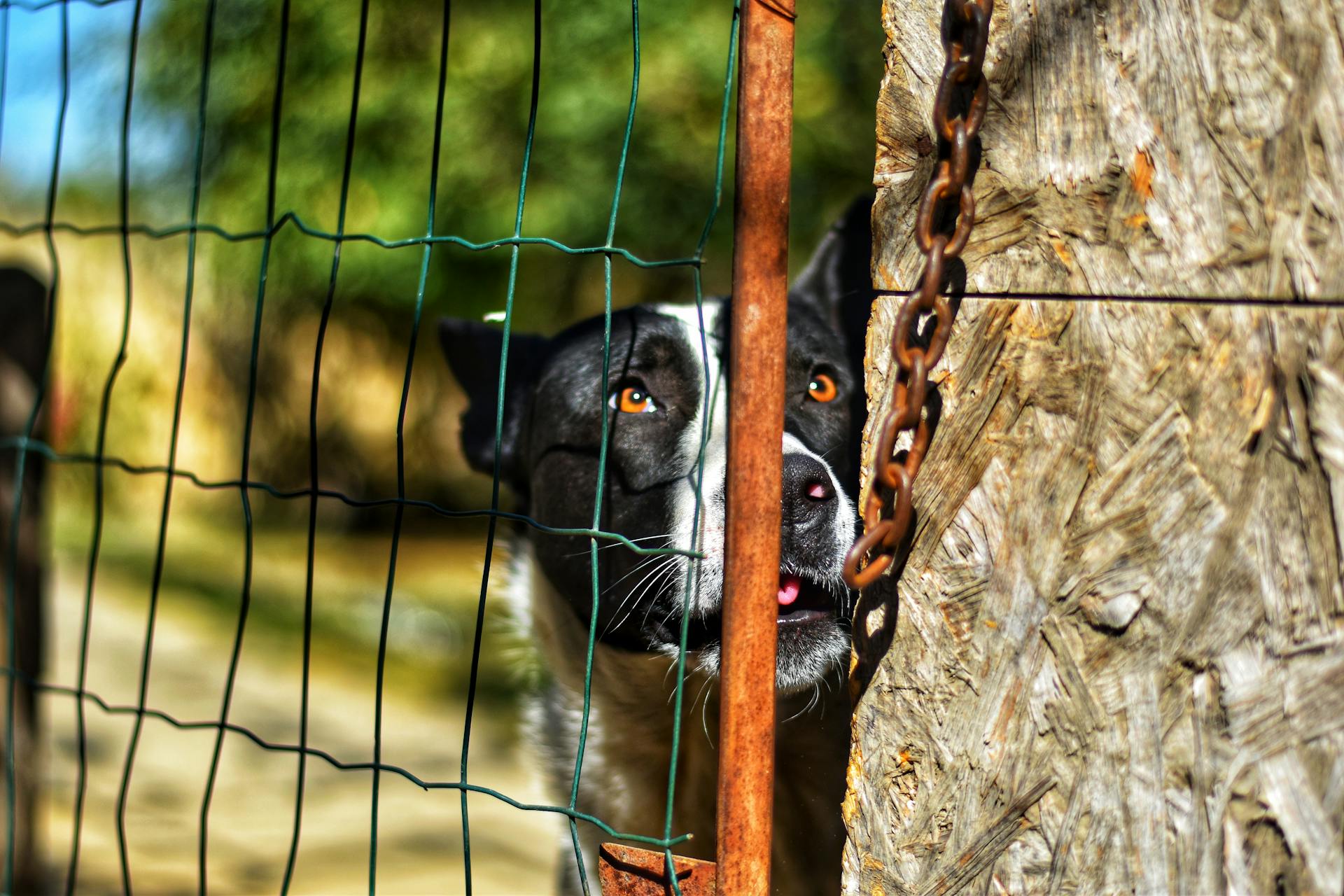
Symptoms of kennel cough can vary in severity and duration. The first few days are usually the worst, with bouts of hacking cough triggered by activities like barking, excitement, pulling on the lead, and going out in cold air.
A dog with kennel cough will typically show some or all of the following symptoms: a dry or productive cough, often with foamy mucus; retching or gagging; watery discharge from the nose; and runny eyes.
The cough can sound like the dog is retching or be described as dry and hacking. Sneezing and eye discharge are also common symptoms.
In more severe cases, the dog can develop a fever and have trouble breathing. They may also lose interest in eating and appear tired.
Here are some common symptoms of kennel cough:
- Dry or productive cough (often with foamy mucus)
- Retching or gagging
- Watery discharge from the nose
- Runny eyes
- Sneezing
- Fever (in severe cases)
- Difficulty breathing (in severe cases)
How Is CIRD Diagnosed?
To diagnose CIRD, you'll first need to visit your veterinarian, who will likely recommend a thorough examination of your dog for signs of illness and ask questions about exposure to other dogs or multiple-dog settings.
Most dogs with mild CIRD will improve quickly, so there's no need for diagnostic tests in those cases. Your veterinarian will make a "presumptive" diagnosis based on the examination and questioning.
Your veterinarian may also know about other cases of CIRD in the area, which can strengthen suspicions.
If multiple dogs are affected or your dog is getting worse despite supportive treatment, testing is recommended. In these cases, your veterinarian will collect swab samples from the throat, nose, and/or edges of the eyes and submit them for lab testing to confirm infection and identify the specific bacteria/viruses involved.
Less commonly, blood tests may be recommended.
Treatment and Prognosis
For most cases of kennel cough, the prognosis is very good, and most dogs recover on their own within 10 days.
If your dog has mild kennel cough, it's best to let the disease run its course, as treatment with antibiotics and cough suppressants can be controversial.
Dogs with pre-existing respiratory diseases, brachycephalic breeds, puppies, geriatric dogs, and immune-compromised pets have a poorer prognosis.
Even vaccinated dogs can still develop kennel cough, but they tend to have a much better prognosis, as vaccination can reduce the duration and severity of the disease.
Antibiotics are not always necessary, but they can be started if your dog has a fever, is lethargic, has yellow or green discharge, is not eating, or the cough is getting worse.
You might like: Heat and Dogs Not Eating
Treatment
Treatment for kennel cough is often a topic of debate among veterinarians.
For mild cases, it's usually best to let the disease run its course, as kennel cough is a self-limiting condition that will resolve on its own over time.
However, more severe cases may require antibiotics to prevent secondary bacterial infections and shorten the shedding period.
A common antibiotic used to treat kennel cough is Doxycycline, which can be effective in treating bacterial causes of the condition.
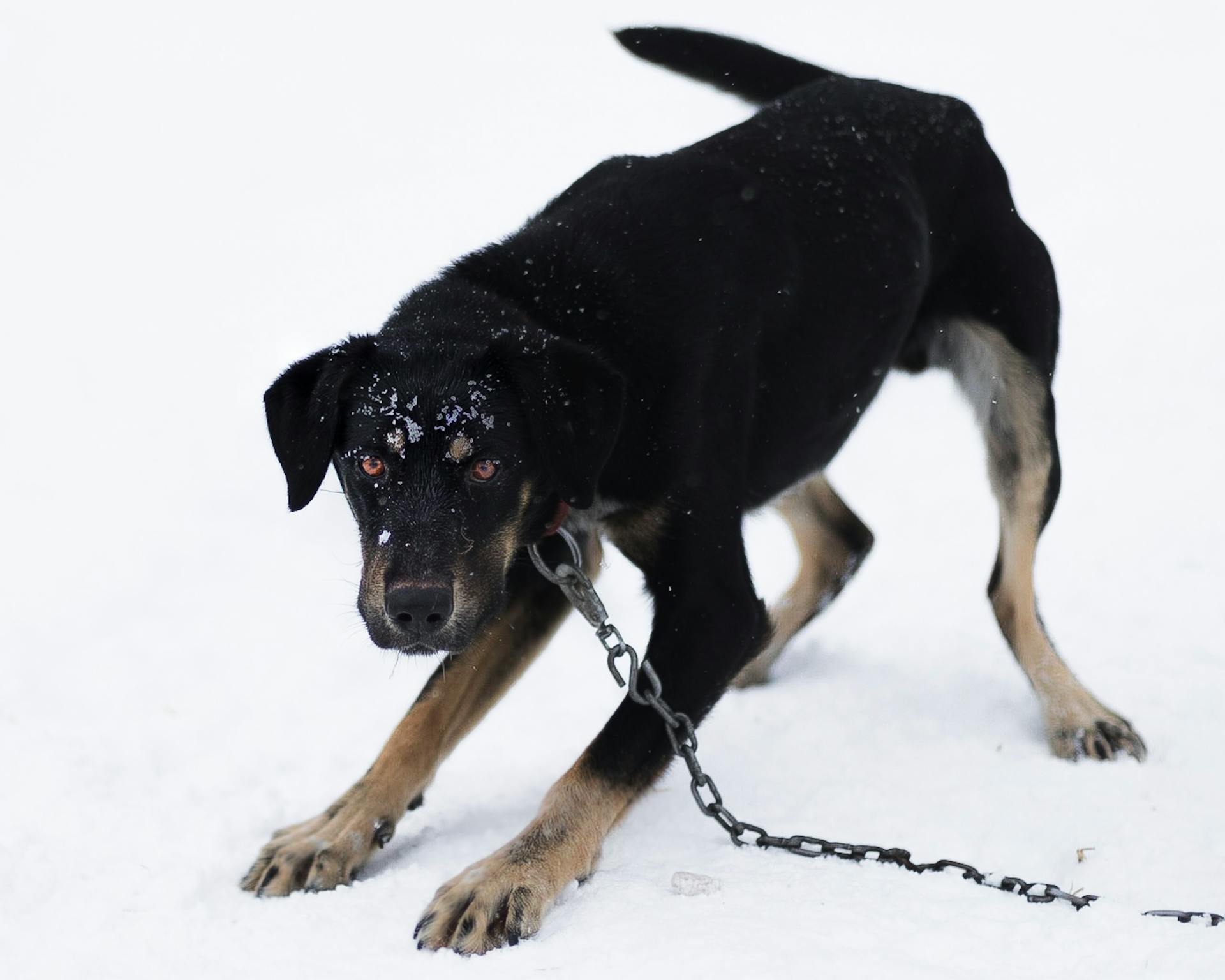
But antibiotics are only efficient against bacteria, not viruses, so they may not directly treat the underlying cause of kennel cough.
Cough suppressants are also sometimes prescribed to make the dog feel more comfortable, but they can actually prolong the time needed for clearing up the infection.
This is because coughing is a natural way for dogs to expel mucus and pathogens, and suppressing the cough can make it harder for the dog to recover.
In some cases, a cough suppressant might be prescribed if the cough is severe enough, but it's essential to weigh the pros and cons of this treatment.
Most dogs will clear the infection themselves in 10 to 14 days, especially if they're not showing any other symptoms or complications.
In fact, it's recommended to wait at least 10 to 14 days before doing any treatment, unless the dog is showing signs of severe illness or distress.
If you do decide to seek treatment, it's essential to work with a veterinarian to determine the best course of action for your dog's specific case.
On a similar theme: Kennel Cough Vomiting Treatment
Prognosis for Dogs
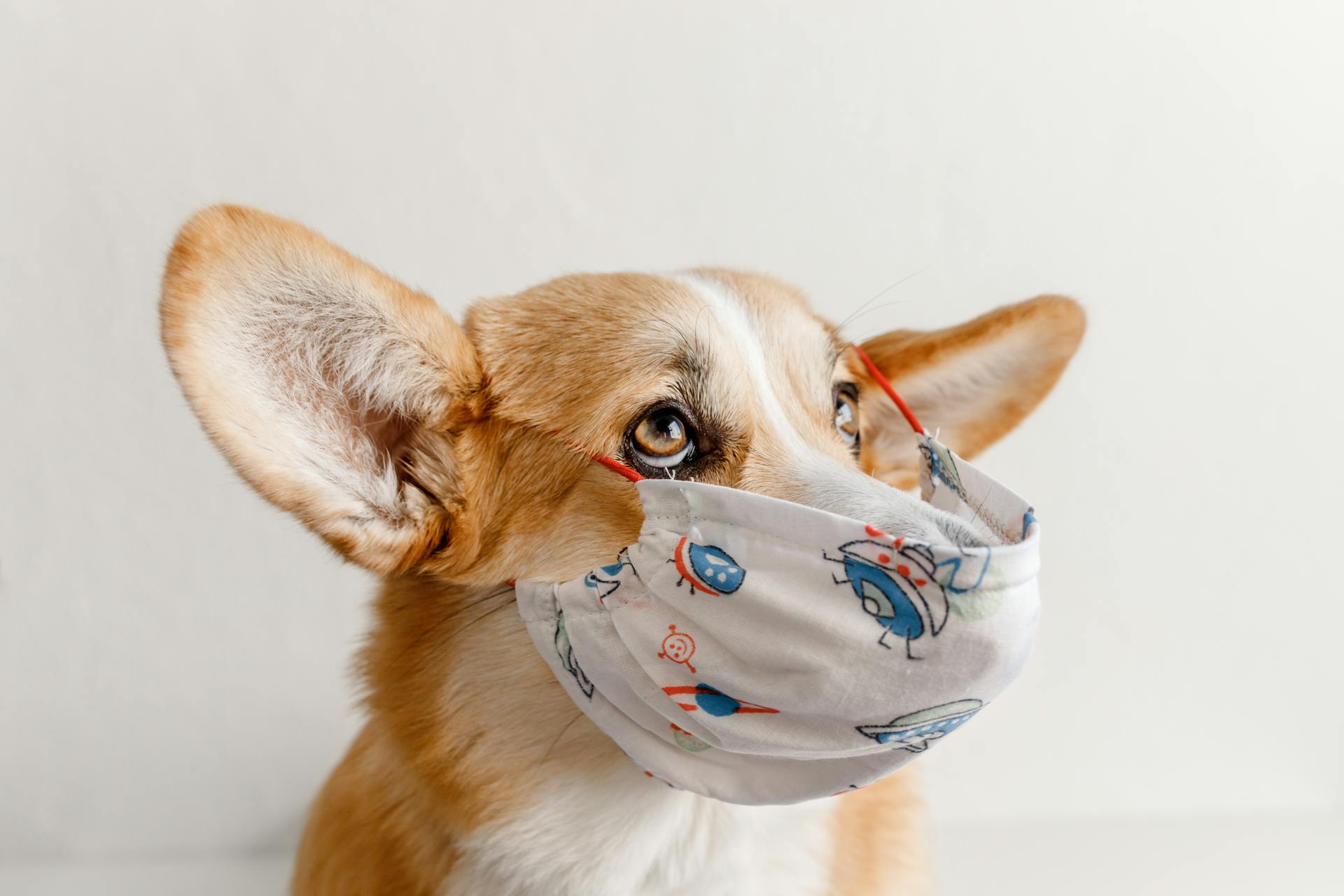
For most dogs, the prognosis for kennel cough is very good, with many recovering on their own within 10 days.
Dogs that are current on their vaccination for kennel cough have a much better prognosis, with the duration and severity of disease significantly reduced.
The prognosis is poorer for dogs with pre-existing respiratory diseases, including brachycephalic breeds such as pugs, bulldogs, and Boston terriers.
Dogs with weak immune systems, including puppies, geriatric dogs, and those with immune-mediated disease or cancer, have a more guarded prognosis and may require more intensive therapy.
Untreated dogs with certain infectious agents, such as Streptococcus equi subspecies zooepidemicus, can die, emphasizing the importance of timely treatment.
Frequently Asked Questions
How do you know when kennel cough is no longer contagious?
Kennel cough is generally no longer contagious after 10 to 14 days of illness, especially with antibiotic treatment. However, it's crucial to keep a coughing dog isolated from others during this time to prevent the spread of the infection.
Can I still take my dog for a walk with kennel cough?
No, it's generally not recommended to walk your dog with kennel cough, especially if symptoms are severe or your dog is still contagious. Consult a veterinarian for guidance on caring for your dog during this time
Can I still cuddle with my dog with kennel cough?
It's best to limit cuddling with your dog if they have kennel cough, especially if you're ill or have a weak immune system. This helps protect both you and your dog from potential complications.
Sources
- https://www.publicopiniononline.com/story/news/2018/01/25/bark-central-quarantined-after-kennel-cough-reports/1065266001/
- https://www.avma.org/resources-tools/pet-owners/petcare/canine-infectious-respiratory-disease-complex-kennel-cough
- https://www.americanhumane.org/fact-sheet/kennel-cough/
- https://perthvetcare.com.au/pet-library/kennel-cough-in-dogs/
- https://resources.bestfriends.org/article/kennel-cough-dogs-symptoms-treatments-vaccine
Featured Images: pexels.com


